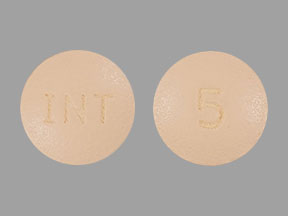Obeticholic acid Disease Interactions
There are 3 disease interactions with obeticholic acid.
Obeticholic acid (applies to obeticholic acid) biliary obstruction
Major Potential Hazard, Moderate plausibility.
Obeticholic acid is contraindicated in patients with complete biliary obstruction.
Obeticholic acid (applies to obeticholic acid) liver impairment
Major Potential Hazard, Moderate plausibility. Applicable conditions: Liver Disease
In postmarketing reports, hepatic decompensation and failure, in some cases fatal, have been reported in patients with primary biliary cholangitis (PBC) with decompensated cirrhosis or Child-Pugh Class B or C hepatic impairment when obeticholic acid was dosed more frequently than recommended. The recommended starting dosage is 5 mg once weekly for patients with Child-Pugh Class B or C hepatic impairment or a prior hepatic decompensation event. Patients in treatment should be closely monitored for progression of PBC disease, including liver- related complications, with laboratory and clinical assessments. Dosage adjustment, interruption or discontinuation may be required.
Obeticholic acid (applies to obeticholic acid) lipids disorder
Moderate Potential Hazard, Moderate plausibility. Applicable conditions: Hyperlipidemia
Patients with primary biliary cholangitis generally exhibit hyperlipidemia characterized by a significant elevation in total cholesterol primarily due to increased levels of high-density lipoprotein-cholesterol (HDL-C). Exercise care when using obeticholic acid in patients with lipids disorder. It is recommended to monitor patients for changes in serum lipid levels during treatment with obeticholic acid. For patients who do not respond to treatment after 1 year at the highest recommended dosage that can be tolerated (maximum of 10 mg once daily), and who experience a reduction in HDL-C, weigh the potential risks against the benefits of continuing treatment.
Switch to professional interaction data
Obeticholic acid drug interactions
There are 64 drug interactions with obeticholic acid.
Obeticholic acid alcohol/food interactions
There are 2 alcohol/food interactions with obeticholic acid.
More about obeticholic acid
- obeticholic acid consumer information
- Check interactions
- Compare alternatives
- Reviews (3)
- Latest FDA alerts (4)
- Side effects
- Dosage information
- During pregnancy
- Drug class: miscellaneous GI agents
- En español
Related treatment guides
Drug Interaction Classification
| Highly clinically significant. Avoid combinations; the risk of the interaction outweighs the benefit. | |
| Moderately clinically significant. Usually avoid combinations; use it only under special circumstances. | |
| Minimally clinically significant. Minimize risk; assess risk and consider an alternative drug, take steps to circumvent the interaction risk and/or institute a monitoring plan. | |
| No interaction information available. |
See also:
Further information
Always consult your healthcare provider to ensure the information displayed on this page applies to your personal circumstances.


